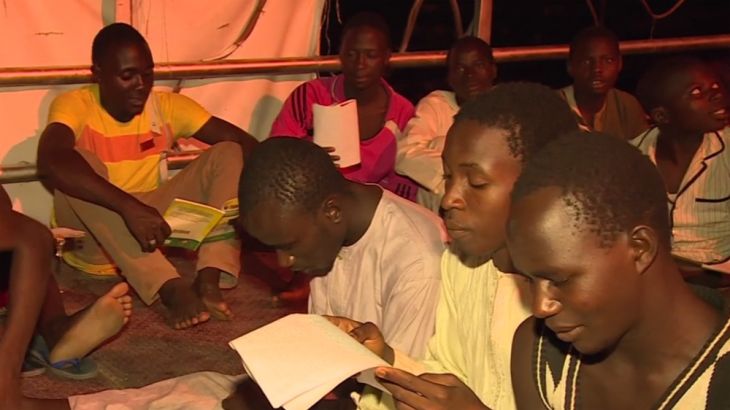Students suffer in power-starved Nigeria
With no electricity at home or in their classrooms, students forced to study for exams under streetlamps.

In the midst of an energy crisis that has seen petrol stations run dry and major telecommunications companies warn of impending closure, widespread power cuts are having a dramatic impact on education in Nigeria.
A Jazeera’s Ahmed Idris, reporting from Kano in northern Nigeria, says that with no electricity at home or in their classes, students are forced to study for end-of-year exams in unusual environments.
Keep reading
list of 4 items‘We need you’: Solomon Islands’ support for US agency’s return revealed
Why are nations racing to buy weapons?
Parallel economy: How Russia is defying the West’s boycott
One student, Sulaiman Abdulkarim, and his friends were studying under streetlamps on a major highway when Al Jazeera spoke to them.
“I am here in order to read my lecture notes because there is no electricity in our area,” he said.
“We are facing the practicals of computer but there is no electricity.”
Behind him, cars and lorries rush past.
Teachers say students’ grades are falling, along with the larger education sector.
“It affects the quality of education they are getting and it also affects the output coming from the students,” Kabiru Sufi, a college lecturer, told Al Jazeera.
“It has impacted on teaching in such a way that it has affected research.”
Africa’s biggest oil producer currently imports most of its refined petroleum and, just last week, the government said electricity generation hit an all-time low of 1,300MW for a population of 170 million.
It blames sabotage of oil and gas pipelines, as well as an oil workers’ strike.
With chronic shortage of petrol and diesel, most places, including hospitals, are finding it difficult to deliver services.
In a few days, Nigeria’s new government headed by Muhammadu Buhari will be sworn in.
The challenges that they face will include corruption, security, infrastructure decay and the current energy crisis.